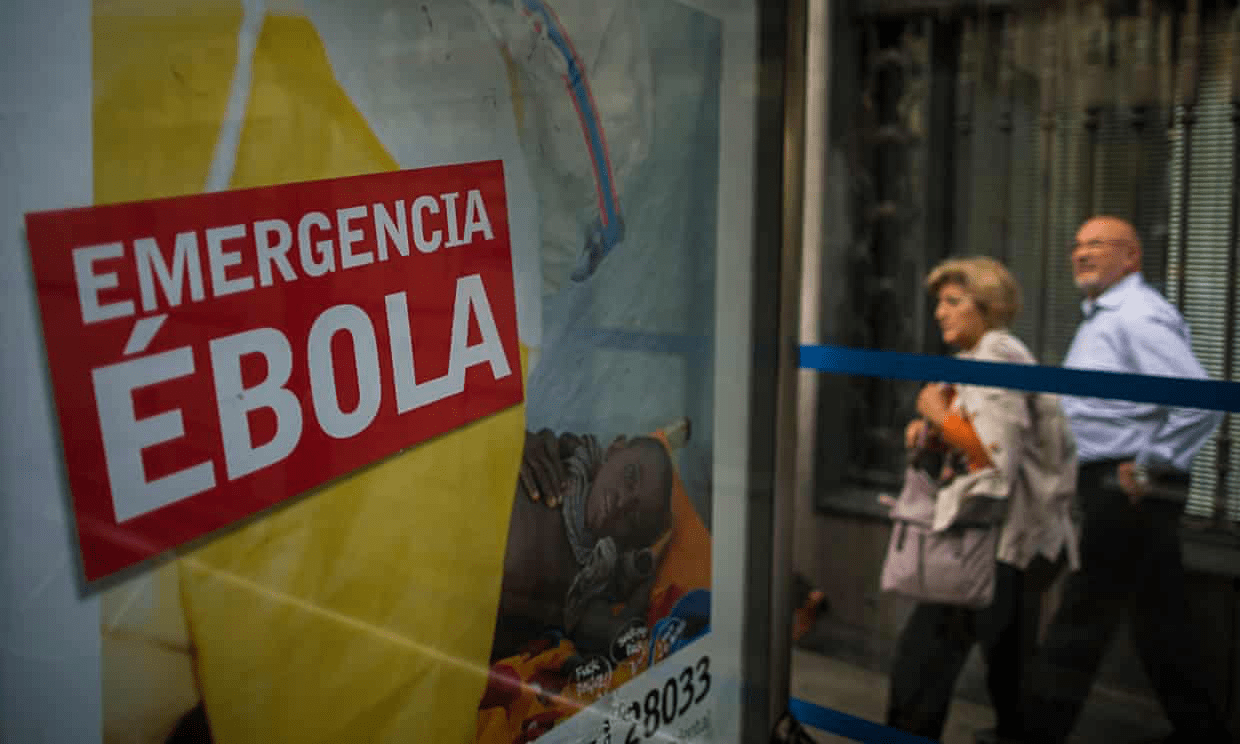

“Deforestation and increasing demands on habitats to produce food don’t just wreck the environment, they are increasing the risk of global pandemics like Ebola”, writes Henrietta L. Moore on The Guardian Sustainable Business Prosperity blog, 28th October 2014:
Like a sleepwalker roused from his dream, the world is slowly waking up to the full nightmare of the Ebola outbreak decimating west Africa. With small numbers of cases turning up in western countries, governments here are belatedly pledging action to fight the disease, which has already claimed almost 5,000 lives.
Liberia, Sierra Leone and Guinea – all countries struggling to recover from wars still fresh in the memory – have buckled under the onslaught of this horrific virus. Inadequate, creaking health services have been no match for a ruthless killer. But while the shocking poverty of these countries provides the fertile ground for the disease to spread, there are bigger issues at play that ought to cause us to think about the macroeconomic conditions that brought us to this point.
Ebola – like HIV, anthrax, Sars, avian flu and other pandemics of recent years – is a zoonotic virus, one that has crossed from animals to humans. It was first identified in 1976 during near-simultaneous outbreaks in Sudan and what is now the Democratic Republic of the Congo (DRC).
The strain of Ebola implicated in the current outbreak is thought to have originated from a mutant pathogen found in fruit bats. This is where we see a direct connection with economic development. The conflicts which have done so much damage to the affected countries have also attracted a range of activities – both legal and illicit – including logging and extractive industries like bauxite mining, which have deforested large swathes of the region.
This massacre of the natural environment has reduced biodiversity and pushed the remaining fauna into closer contact with humans. So the fruit bats forced out of former rainforest are now seeking food from human settlements – and becoming food themselves, with the disastrous consequences we are now seeing. According to the World Health Organization (WHO), it is thought that Ebola is “introduced into the human population through close contact with the blood, secretions, organs or other bodily fluids of infected animals…”
And we already know that the risk doesn’t only come from so-called “bushmeat” – intensive animal husbandry and battery farming can produce the same results, as we have seen with the avian and swine flus of recent years.
These diseases not only kill people, they also devastate the productive bases of economies. The World Bank has already estimated that the economic cost of Ebola to the countries of west Africa could be as high as $32.6bn (£20.2bn) by the end of 2015. But for fragile economies already teetering on the brink, this represents an incalculable human catastrophe.
Read the rest of the article on The Guardian Sustainable Business Rethinking Prosperity Blog http://gu.com/p/42nye